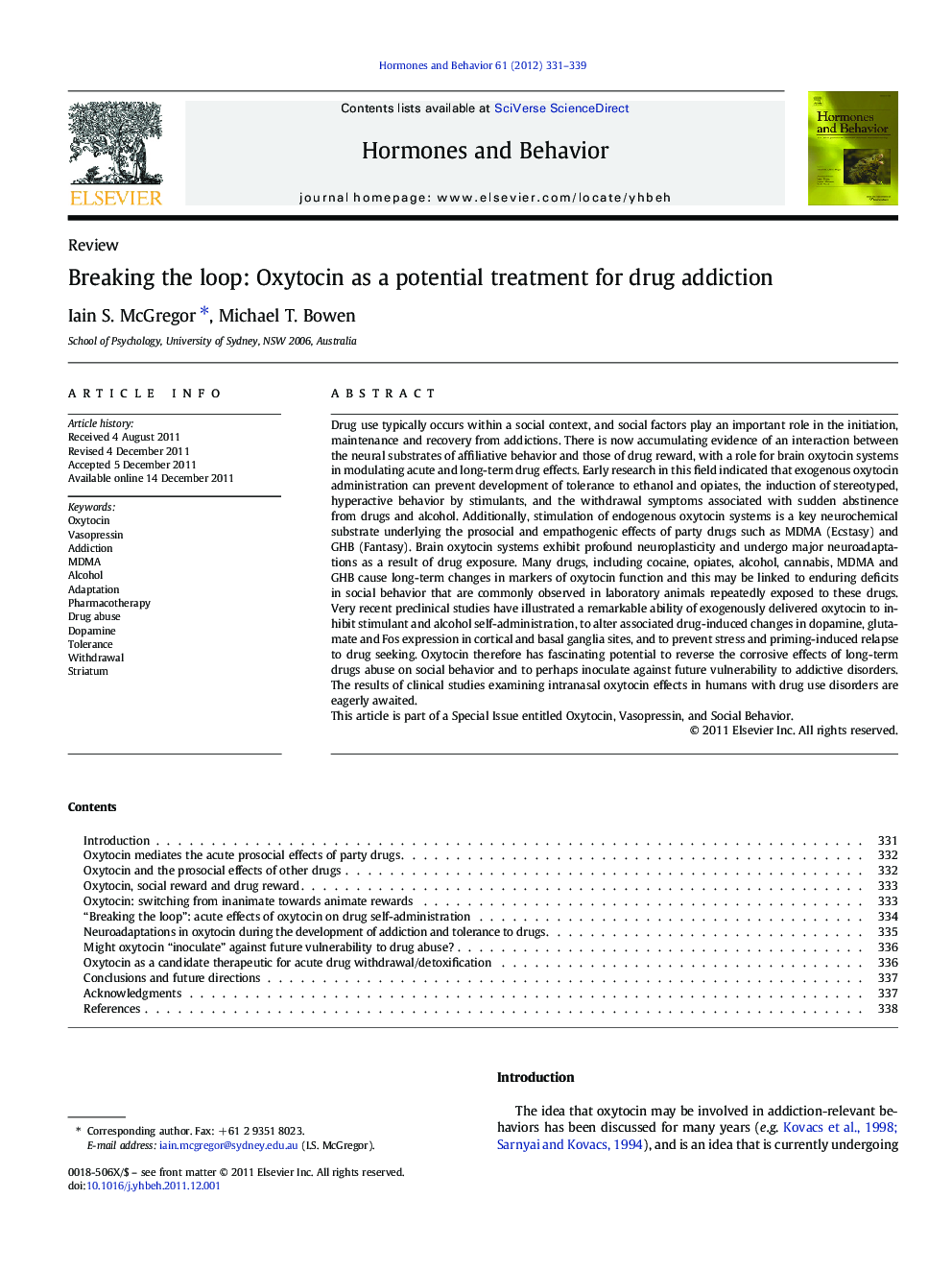| کد مقاله | کد نشریه | سال انتشار | مقاله انگلیسی | نسخه تمام متن |
|---|---|---|---|---|
| 323664 | 540740 | 2012 | 9 صفحه PDF | دانلود رایگان |

Drug use typically occurs within a social context, and social factors play an important role in the initiation, maintenance and recovery from addictions. There is now accumulating evidence of an interaction between the neural substrates of affiliative behavior and those of drug reward, with a role for brain oxytocin systems in modulating acute and long-term drug effects. Early research in this field indicated that exogenous oxytocin administration can prevent development of tolerance to ethanol and opiates, the induction of stereotyped, hyperactive behavior by stimulants, and the withdrawal symptoms associated with sudden abstinence from drugs and alcohol. Additionally, stimulation of endogenous oxytocin systems is a key neurochemical substrate underlying the prosocial and empathogenic effects of party drugs such as MDMA (Ecstasy) and GHB (Fantasy). Brain oxytocin systems exhibit profound neuroplasticity and undergo major neuroadaptations as a result of drug exposure. Many drugs, including cocaine, opiates, alcohol, cannabis, MDMA and GHB cause long-term changes in markers of oxytocin function and this may be linked to enduring deficits in social behavior that are commonly observed in laboratory animals repeatedly exposed to these drugs. Very recent preclinical studies have illustrated a remarkable ability of exogenously delivered oxytocin to inhibit stimulant and alcohol self-administration, to alter associated drug-induced changes in dopamine, glutamate and Fos expression in cortical and basal ganglia sites, and to prevent stress and priming-induced relapse to drug seeking. Oxytocin therefore has fascinating potential to reverse the corrosive effects of long-term drugs abuse on social behavior and to perhaps inoculate against future vulnerability to addictive disorders. The results of clinical studies examining intranasal oxytocin effects in humans with drug use disorders are eagerly awaited. This article is part of a Special Issue entitled Oxytocin, Vasopressin, and Social Behavior.
► There is interaction between the neural substrates of affiliative behavior and those of drug reward.
► Oxytocin release may mediate the positive prosocial effects of drugs such as MDMA (Ecstasy).
► Oxytocin can inhibit drug and alcohol intake and also ameliorate drug withdrawal symptoms.
► Long term neuroadaptations in oxytocin systems may explain how social behavior is adversely affected by long-term drug abuse.
► Oxytocin receptor agonists have potential as therapeutics for treating drug addiction and associated psychopathology.
Journal: Hormones and Behavior - Volume 61, Issue 3, March 2012, Pages 331–339